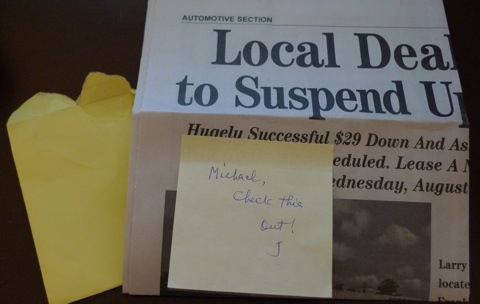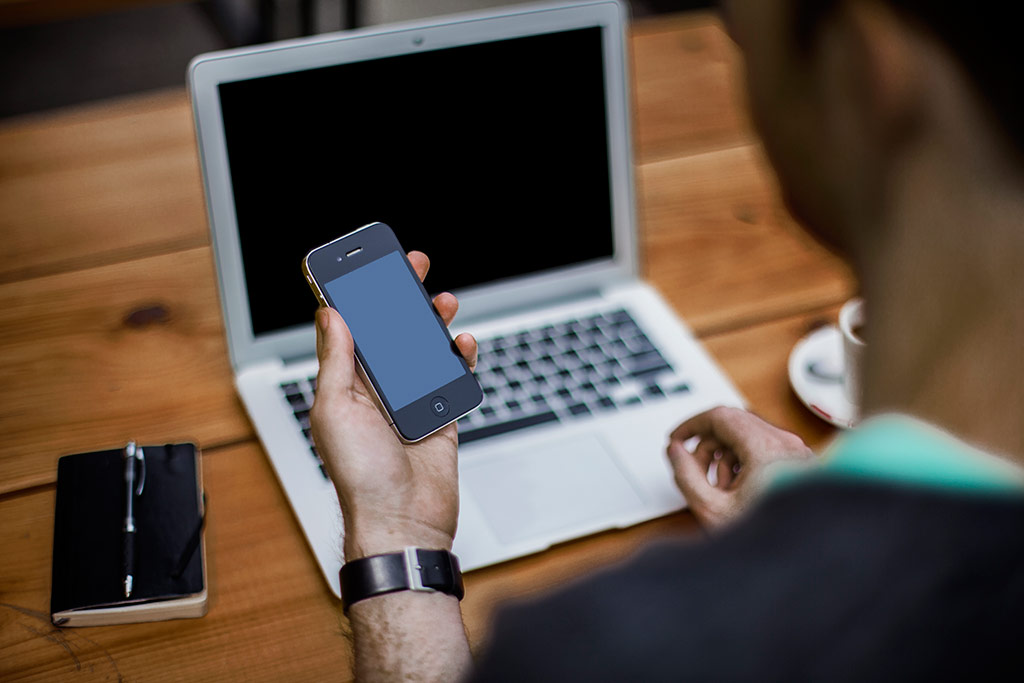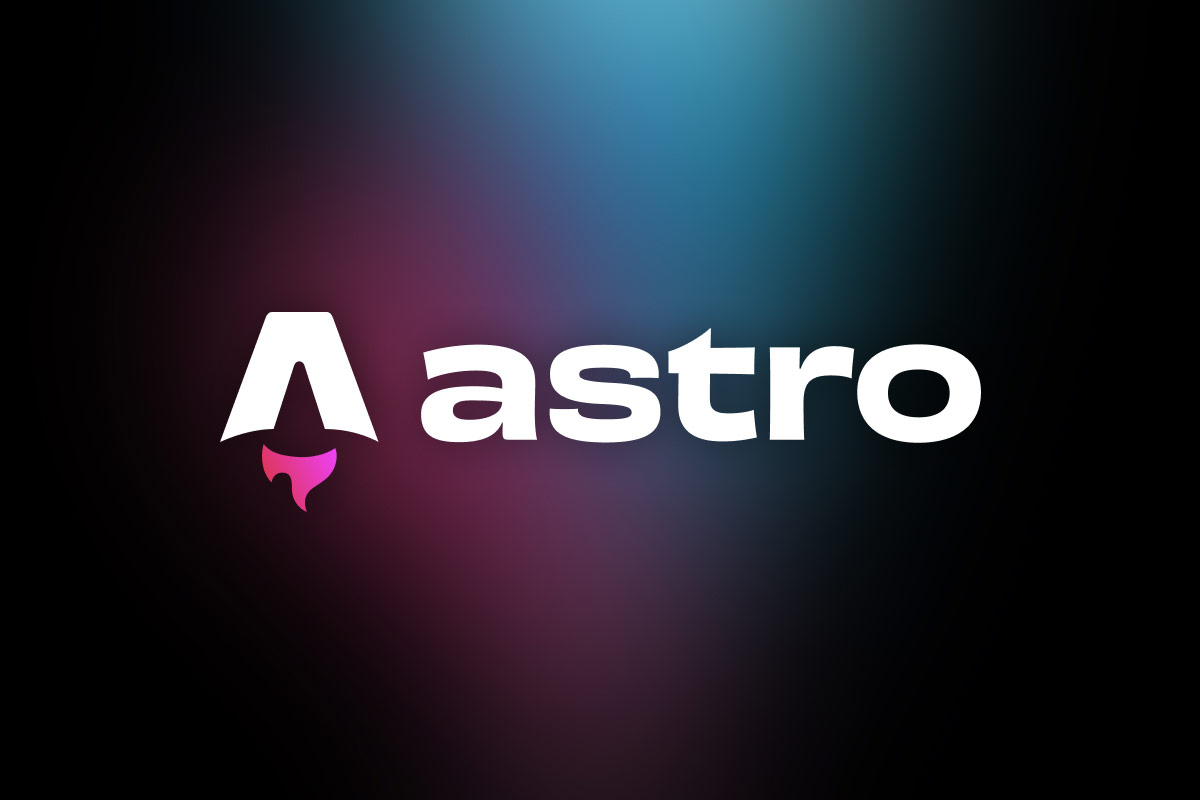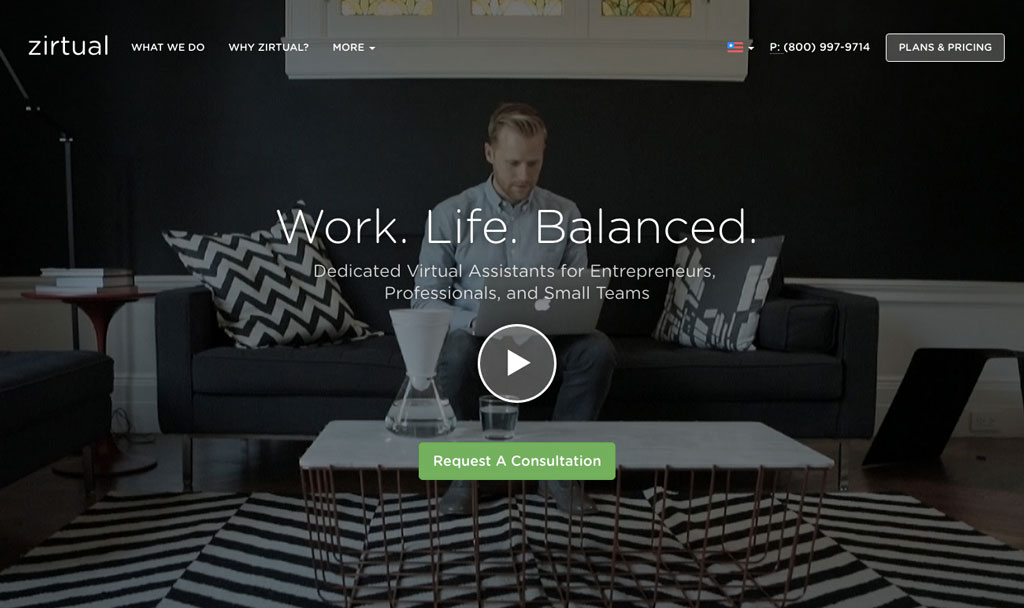· 3 min read
You Can’t Fake Personal
I got a letter in the mail the other day, and was pretty surprised at first. After all, who writes letters anymore? A lesson about building trust and being truly personal.

I got a letter in the mail the other day, and was pretty surprised at first. After all, who writes letters anymore? I opened the envelope to find a newspaper clipping with a handwritten post-it note attached. I thought to myself, “Was I mentioned in a newspaper somewhere?”
The first clue was on the outside of the envelope. It addressed my first name (I’m called by my middle name). Could have easily been an oversight, I guess. On the post-it note inside, also addressed to Michael. And as I looked at the newspaper clipping, it had nothing to do with me, personally. It was a fake newspaper article about a local car dealership who was running a “special pricing event.”
This is a car dealership I’ve bought from before, and I have a family friend that works there. I have shopped with them several times looking for new cars. People there know my name when I walk in. I don’t honestly know what’s more insulting, that they couldn’t even take the time to address it to the correct name, or that they actually thought I would believe this was a real newspaper article.
You Can’t Fake Personal
This car dealership went to a lot of effort to trick people into thinking a newspaper wrote a positive article about them. This plays on people’s need for social proof. The personal style of mailing the newspaper clipping and note are intended to build trust and rapport. Only one problem — you can’t build trust on top of a lie.
Instead of building trust and rapport, this car dealership has lost trust with me. How many more people got the same “article” in the mail and instantly saw through the facade? This is a major problem for industries like theirs, that are already seen as less than trustworthy.
Make Deposits, Not Withdrawals
Stephen Covey describes the emotional bank account in The 7 Habits of Highly Effective People. Essentially, every relationship (even business relationships) work like a bank account. Acts of kindness, helpfulness and trust make deposits. Uncaring, deceitful or disrespectful acts make withdrawals. The balance of the bank account is your level of trust with the person or company at any given time.
You can’t make a withdrawal (asking someone to buy something, or even consider buying something) until you’ve made enough deposits just like you can’t open a checking account and withdraw $10,000 before depositing any money. Deposits can’t be fake. In this case, sending a fake newspaper clipping was actually a big withdrawal.
It’s Not That Hard
The really sad part of this story is that it’s just as easy to be thoughtful and truly personal as it is to fake it. I have been in this dealership recently looking at new vehicles for my wife. This dealership could have easily seen that in the file, and found a real newspaper clipping or online article about how interest rates were at all time low or now was the time to buy a car. They could’ve even sent the same newspaper clipping to everyone… as long as it was legitimate.
How Are You Faking Personal?
We’re all guilty of being impersonal from time to time. Look at your business processes – Where are you trying to appear personal? Are you truly being personal, or are you taking a shortcut? Would it really take more time to be truly personal?




